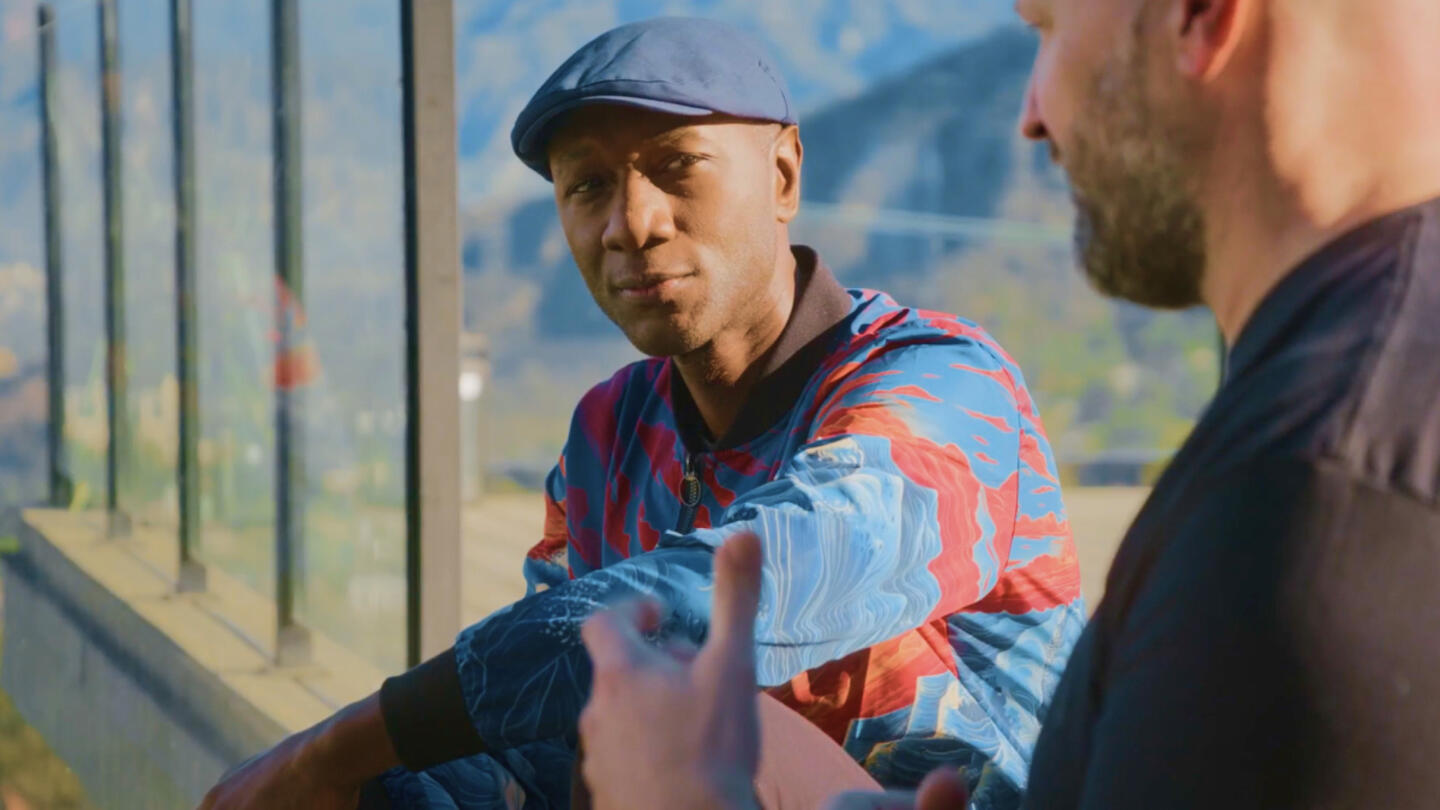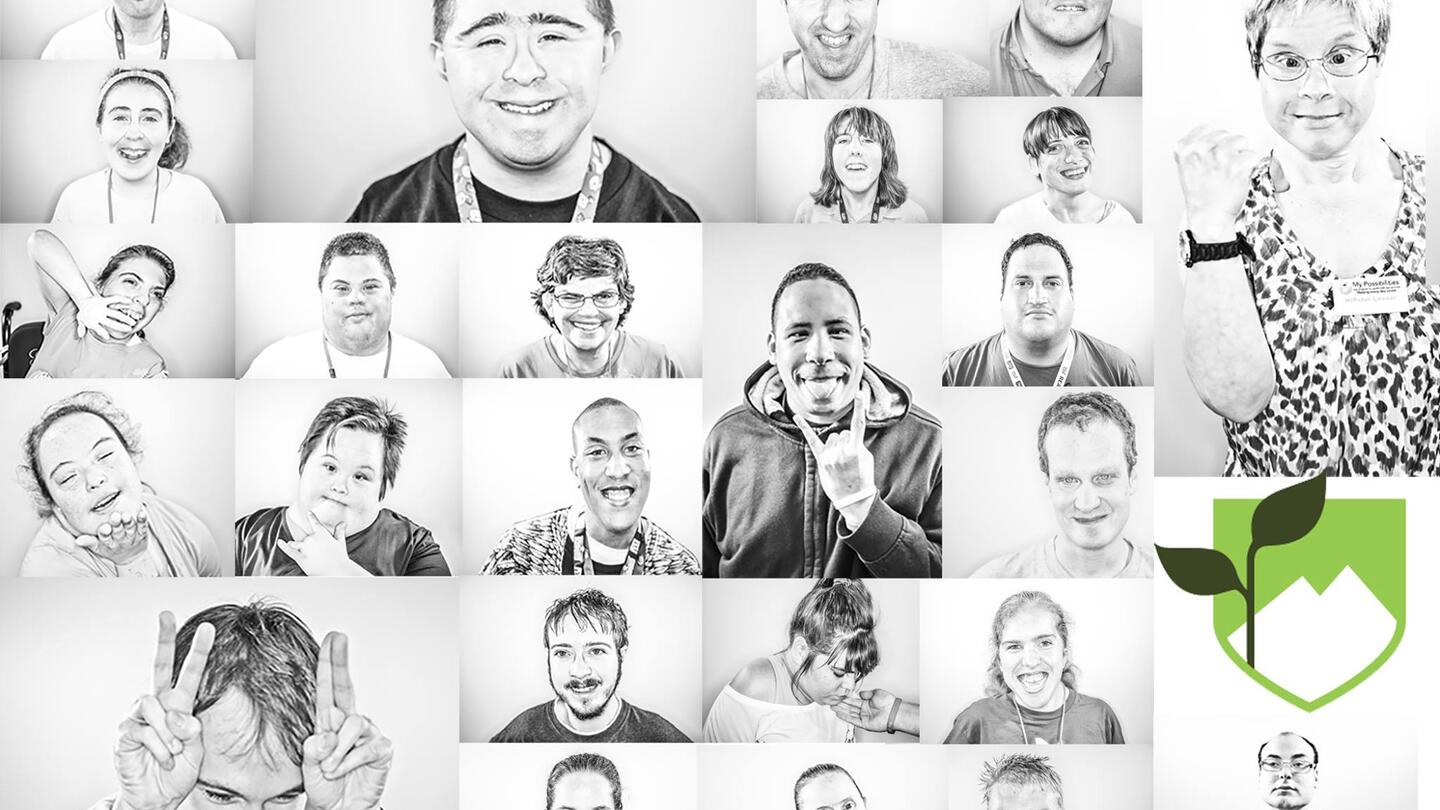When My Possibilities Director Michael Thomas thinks of people who embody his organization's vision best, a computer expert working for JP Morgan named Mason comes to mind. On the surface, Mason's current career status may seem ordinary. But his path to get there was anything but.
When he was a freshman in college, Mason was diagnosed with Wilson Syndrome, a condition in which the body no longer processes copper. The condition left him first fatigued, then with declining impulse control, and finally with brain damage that left him regressed to a fourth-grade level.
Mason and his family weren't sure what his future would look like until they found My Possibilities.
"I love Mason's story because he represents a realm of disability," says Thomas. "We don't think about those people who were born healthy. Could be a car accident. Could be a fall, could be Wilson's disease. He represents somebody who is at the collegiate level and an incident brings him back down to a fourth grade level. He worked his way back. It was a hell of a fight, too."
While not every story of cognitive challenges ends like Mason's, My Possibilities wants to shine a light on just that – possibilities – and then turn them into reality.
My Possibilities erases the idea of adult day care
My Possibilities helps close a critical gap in the market for education and workforce development services. Beyond high school, people with cognitive disabilities are left with few options. "We don't fund the system adequately," Thomas explains. "What parents end up paying for is adult day care. These centers offer caretakers a break, which is important, but that's where the benefit ends. It becomes a Groundhog Day of the same old routine and doesn't tap into the true potential for education, growth, and a lifelong sense of purpose.
"The founders of My Possibilities are parents that said, 'our kids are 21, they have amazing potential, they need to continue working and learning and they need to be given an opportunity to go down that pathway so they can be included in the community and they can work for somebody and they can live independently," Thomas says. "Adult day care is not going to provide a pathway to any of that."
My Possibilities started with that dream in 2008, welcoming 10 adults into the center daily.
They have since grown substantially. Every day, 500-600 Hugely Important People, or HIPsters as My Possibilities refers to them, are part of the program. They are thriving through the center's comprehensive academic and vocational pathway. The program also offers career services and access to local jobs and placement.
Sign up for the Strong & Safe Communities newsletter for stories, ideas, and advice from changemakers working with their neighbors to address the biggest problems we face.
My Possibilities: Unlocking potential in disability advocacy
My Possibilities must expand to meet the current need. As of 2019, 1.2 million people in Texas were living with an intellectual developmental disability. "I could replicate this building 15 times over in north Texas, and they'd all be full," Thomas says.
They are expanding quickly to try to meet it, building a 20-acre, college-like campus in North Texas. When it's completed, they'll have about 70,000 square feet of educational space, and they'll be able to support close to one thousand adults on a weekly basis.
Because of the individualized pathway each HIPster follows, the wide spectrum of disabilities are met with a real promise and goal of growth. Whether you were born with a disability or affected by one later in life, our common human desires are all the same – to feel valued in society and supported by loved ones and friends. Helping program participants find that common ground is the purpose of My Possibilities.
"There's no like magical IQ line where somebody at this level or below doesn't want or care about meaningful relationships, or to have their own space and things, or to contribute to work and society," Thomas says. "They're absolutely still people and 100% still have those same goals. But society has sort of treated their pathway as 'because you're here and below, we don't need to tailor programmatic components to talk about marriage or having your own place or working for JP Morgan Chase. Like…we don't expect that from you.' And so we've not built the systems to support them to get there."
Working together with the business community in North Texas, My Possibilities educates potential employers and the business community at large about this often overlooked pool of applicants, which creates a win-win for both the program and the community.
"We do a lot of educating them on what inclusivity looks like…kind of breaking down some of those myths and misconceptions about hiring somebody with a disability."
My Possibilities believes their work will have a ripple effect. "If the business world gets it, it permeates," says Thomas. "You get to all their employees, into the employees' families, and then it just kind of becomes commonplace."
My Possibilities is just getting started
Thomas has big plans. "We want to go big, " he says. The organization's long-term vision is to change society's views about what's possible for adults with cognitive disabilities.
"If somebody with a disability lives next door to you in your neighborhood, that should be the same as the family that lives on the other side of you. There should be no difference in that," Thomas says. What drives his work is that he considers the world still only in phase one when it comes to including people with disabilities in daily life.
Thomas sees so much hope in Mason's story. "He's working full time with a salary, benefits, and the whole nine. He's on a support team. People know his story, but he's great with computers. They've got him plugged in. He's doing real work. He's full-time."
Mason is just one example of My Possibilities goal of participants being independent and contributing in their own way. Mason is part of a larger team who may now all see adults with disabilities a little differently than they did before. It's that ripple effect Thomas believes in so much.
"I don't want to have to talk about disability inclusivity in 20 years. I think we're just going to get to where people feel comfortable acknowledging that just because individuals with intellectual and developmental disabilities got dealt slightly different hands, it doesn't mean that they don't want the same stuff, the same things we do. And, if given the opportunity to learn and be supported down those pathways, they absolutely will achieve across the board."
My Possibilities is supported by Stand Together Foundation, which partners with the nation's most transformative nonprofits to break the cycle of poverty.
Learn more about Stand Together's economic progress efforts.

At this ‘resort,’ children with intellectual disabilities are seen as gifts to be celebrated and loved.

Veterans experience loss when leaving service. Could this be key to understanding their mental health?

The Grammy-nominated artist is highlighting the stories we don’t get to hear every day.

With his latest project, Blacc isn’t just amplifying stories — he’s stepping into them
